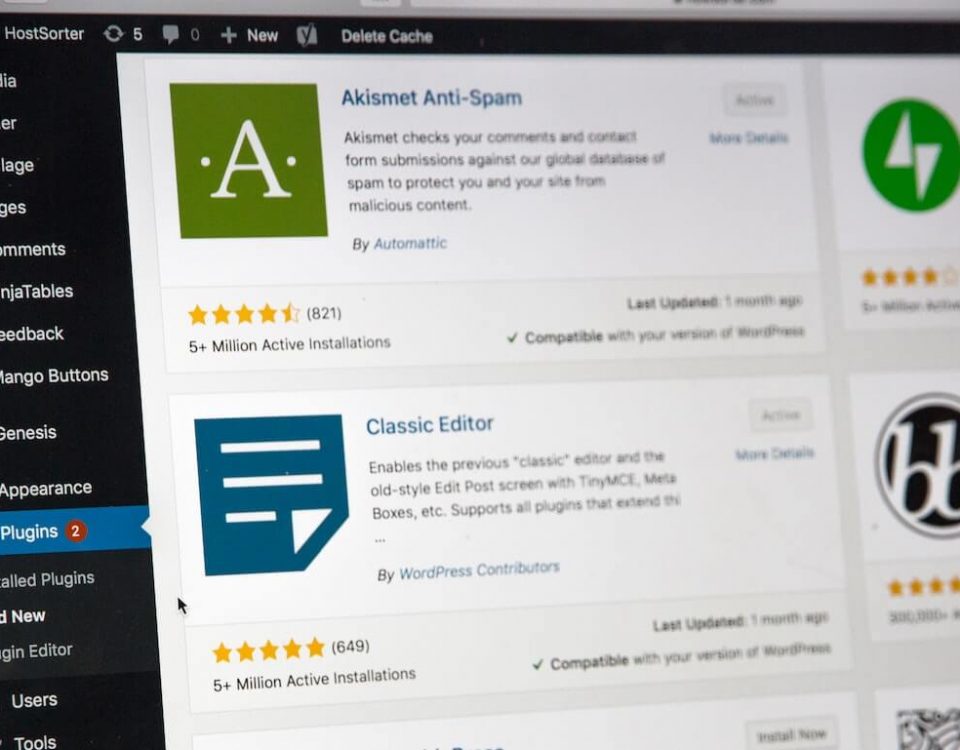What is a Search Engine Optimization (SEO) Audit?
Growth Driven Design – How to Create a Conversion Focused Website
June 9, 2016
Seven Hacks to Improve Search Engine Rankings and Traffic to Your Blog
June 27, 2016FREE Audit, Tools & Checklist to Drive New Traffic, Leads & Customers
What is a Search Engine Optimization Audit?
An SEO audit is the process of evaluating the healthiness of a web site in a number of areas. The manual audit looks at the technical infrastructure of your website, the on-page elements and the off-page essentials that provide optimized Search Engine visibility, usability and lead to customer conversion.
In short, an SEO audit will identify opportunities to improve your search engine ranking results (SERPs).
While you can do an SEO audit yourself by using some of the SEO audit guides and tools available on the Internet, we recommend hiring a professional to do it for you.
Here’s why. An SEO expert knows precisely what the best practice guidelines and practices look like. Much like a currency counterfeit expert is able to quickly and intuitively spot a counterfeit, an SEO expert is able to spot or research possible issues quickly and intuitively. It is said that a counterfeit expert is an expert because he knows what the “real thing” looks like. If it isn’t the real thing, it’s a problem. The same thing holds true for the SEO expert.
A lay person will spend hours conducting an audit and not be able to spot the critical issues that could be costing them thousands of dollars in lost traffic and customers. An SEO expert will conduct your audit and provide thousands of dollars of valuable insight for a fraction of the value.
The SEO expert will perform an audit that is specifically tailored for your unique website and industry. The SEO specialist will check the web site against SEO best practices and develop recommendations that will improve the performance of your website and increase rankings and visitors.
Search engine optimization consists of three main categories. Your audit should comprehensively evaluate all three areas.
1. Technical SEO audit
The technical search engine optimization audit involves a detailed analysis of your website’s published pages. Technical issues must be pinpointed and fixed so search engines can crawl, index and rate your website in its listings. This is the checklist of items that should be watched when conducting a technical SEO audit:
- Information architecture – Information architecture (IA) refers to how information is structured around your website. The better your site structure, the better your chance of ranking high in the search engines. Technical SEO audit involves checking several aspects of IA which might significantly impact your website ranking. For example, the technical SEO audit whether your navigation has been developed to create an intuitive user experience. It also checks to see how your links are labeled and if your website hierarchy is deeper than three folders. After the audit is complete, you will receive a report that helps you know what improvements must be made in order to maximize your website’s performance in the search engines.
- Code Efficiency – To do well in the search engines result pages, your website must be fast. The Technical SEO audit can give you an in depth understanding about the SEO related issues that cause your website to load slowly and therefore have a negative impact on your search engine rankings. Some of these are likely to be server response codes like 302, 301, and 404.
- Dynamic URLs – URLs that use special characters can be termed as unfriendly. It is said that special characters can cause issues with search engine bots that crawl and index your web pages. Search Engines prefer static URLs to dynamic URLs; be sure all URLs are simple and user-friendly. Consider using a URL rewriting solution that converts dynamic URLs into Static URLs.
- Duplicate Content – Google does not consider duplicate content as a violation of Google’s website performance recommendations per se, but classifies it as thin or boilerplate content, which can seriously hurt your site’s search engine visibility. Many website owners don’t even realize that they have duplicate content on their site. Be certain to check for duplicate content issues on your website, including Meta data (title tags, Meta descriptions and so forth).
- Website loading time – Slow loading time issues can harm you in two ways. On one hand, it can negatively impact your search engine rankings, because search engines rank fast loading websites higher than slower ones. A slow loading site can also result in a higher visitor drop-out rate (a 1 second delay in website speed can result in a 7% reduction in conversions). Large images, flash objects and duplicate code are some of the common issues that will slow down your website.
- XML sitemaps – XML sitemap helps search engines like Google, Bing and Yahoo better index your website. Because XML sitemap is not designed for humans (people can’t see it) it is also recommended to also create a human-readable site map that can improve user experience and help your visitors explore your website.
- Crawling/Indexing Issues – Be sure that all of your main web pages can be properly crawled so they can be indexed by search engines. There are many common issues that block a website from being crawled. The most important are broken links or 404’s, usage of flash objects, inclusion of Flash, AJAX, and iFrames content and embedding links in html code. You’ll want to be sure none of these technologies or scripts are blocking crawlers from indexing pages on your site.
Depending on the size of your website, a technical SEO audit can be a very complicated and time consuming process. Technical audit tools like DeepCrawl, Screaming Frog and Google Search Console allows you to perform audit which is comprehensive and fast at the same time.
2. Content or On-page SEO audit
On page factors can have a major impact on your website search engine rankings. By having an SEO expert conduct a content audit to confirm your content is targeting the proper keywords, you could drastically improve your website visibility. Depending on your website, a SEO audit can be a big job. If you are going to do the audit yourself, you’ll want to create an Excel sheet you can use as a simple checklist. Add your web pages or site categories in a column and each element of on-page SEO as the header.
Most of the time, on-page SEO factors are easy to fix, but it can require a little patience. Essential elements of an on-page SEO audit are title tags, meta tags, alt tags, image names, H tags, keyword mapping and cannibalization and on-page copy.
3. The Off-page SEO audit
The off-page SEO audit is just as important as the on-page and technical SEO audit. It covers activities outside the boundaries of the website like backlinks, brand mentions, social media, and external ranking factors. The off-site search engine optimization audit provides a good indication on how other users, websites and search engines perceive your website and your brand.
Are you missing out on leads, customers and revenue?
Conducting a comprehensive and in-depth SEO audit allows you to:
- Detect obstacles that could prevent your website from moving up in the search engine result pages
- Identify opportunities to improve your rankings, traffic and website conversions
- Understand your relevant position to the competition and determine your current position within your marketplace
The advantage of a professional search engine audit is that the SEO expert will help you interpret the data and provide specific recommendations and strategy to help you increase your website’s search engine visibility and increase targeted traffic.
Ready to do your audit? Let us know if you get stumped or need a little help.
Get Your FREE Website and SEO Analysis Today
Using data-driven analyses and research, we will conduct a thorough performance audit of your:
- Website Performance
- Brand Performance
- Inbound Marketing Strategy
- Search Engine Optimization
- Competition
- Social Signals
- Domain Ranking and Rating
Request A Consultation





